
New Hampshire lawmakers weigh equity and impact of expanding casino industry
After a nearly hour-long tour through The Nash Casino, where the bright lights flickered and the celebratory sounds of gaming machines rang out with each win, state Rep. Thomas Schamberg had just one thing to say: The casino seems to have “the right philosophical approach.”
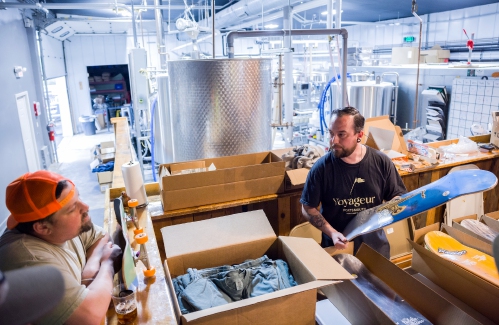
Skateboard company relaunch puts focus on Concord skatepark renovation
Bud Stratford opened The Cleveland Superboard Factory in Concord in the early ‘90s, making skateboards for the growing community of kids who skated at Kiwanis Riverfront’s park and makeshift ramps at Concord High.
Most Read
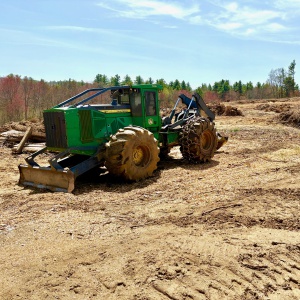 Twelve acres near Concord Walmart cleared for future retail development
Twelve acres near Concord Walmart cleared for future retail development
 When N.H. lawmakers refuse to vote with their party, it comes with political consequences
When N.H. lawmakers refuse to vote with their party, it comes with political consequences
 ‘Financially vulnerable’: Years of missteps led up to Merrimack Valley overspending by $2 million last year
‘Financially vulnerable’: Years of missteps led up to Merrimack Valley overspending by $2 million last year
 ‘New Hampshire is just going to embarrass itself’: Former Child Advocate warns against proposed office cuts
‘New Hampshire is just going to embarrass itself’: Former Child Advocate warns against proposed office cuts
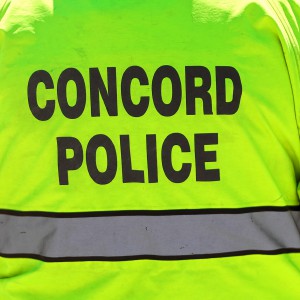 Skeletal remains near I-393 identified as Concord man, 36
Skeletal remains near I-393 identified as Concord man, 36
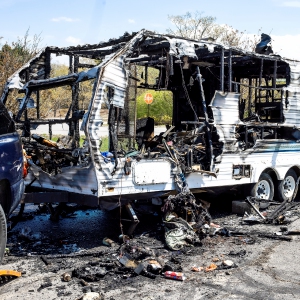 25-year-old Concord man identified as Steeplegate Mall RV fire victim
25-year-old Concord man identified as Steeplegate Mall RV fire victim
Editors Picks
 The Monitor’s guide to the New Hampshire legislature
The Monitor’s guide to the New Hampshire legislature
 One year after UNH protest, new police body camera footage casts doubt on assault charges against students
One year after UNH protest, new police body camera footage casts doubt on assault charges against students
 ‘It’s always there’: 50 years after Vietnam War’s end, a Concord veteran recalls his work to honor those who fought
‘It’s always there’: 50 years after Vietnam War’s end, a Concord veteran recalls his work to honor those who fought
 ‘We honor your death’ – Arranging services for those who die while homeless in Concord
‘We honor your death’ – Arranging services for those who die while homeless in Concord
Sports

High schools: Kearsarge, Bow boys’ lax win; more Monday results
Kearsarge 9, John Stark 4
 High schools: Weekend track and lacrosse results
High schools: Weekend track and lacrosse results
 Softball: Taylor sisters lead Concord to walk-off victory in extra innings
Softball: Taylor sisters lead Concord to walk-off victory in extra innings
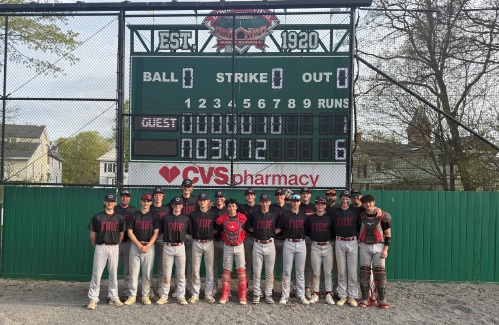 High schools: Concord baseball splits series in Cooperstown, N.Y.
High schools: Concord baseball splits series in Cooperstown, N.Y.
 Generals and Spartans battle it out in a Softball and Baseball doubleheader
Generals and Spartans battle it out in a Softball and Baseball doubleheader
Opinion

Opinion: My memories of Vietnam 50 years later
Jean Stimmell, retired stone mason and psychotherapist, lives in Northwood and blogs at jeanstimmell.blogspot.com.
 Opinion: Concord officials: Can we sit and talk?
Opinion: Concord officials: Can we sit and talk?
 Opinion: Trump versus the U.S. Constitution
Opinion: Trump versus the U.S. Constitution
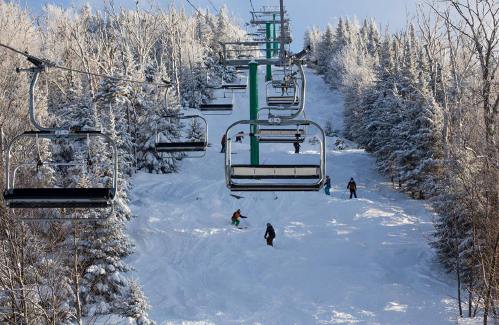 Opinion: Protect our winters!
Opinion: Protect our winters!
 Opinion: That was then. This is now.
Opinion: That was then. This is now.

Your Daily Puzzles

An approachable redesign to a classic. Explore our "hints."

A quick daily flip. Finally, someone cracked the code on digital jigsaw puzzles.

Chess but with chaos: Every day is a unique, wacky board.

Word search but as a strategy game. Clearing the board feels really good.

Align the letters in just the right way to spell a word. And then more words.
Politics

‘A wild accusation’: House votes to nix Child Advocate after Rep. suggests legislative interference
Rosemarie Rung thinks of Elijah Lewis often.
 Sununu decides he won’t run for Senate despite praise from Trump
Sununu decides he won’t run for Senate despite praise from Trump
Arts & Life
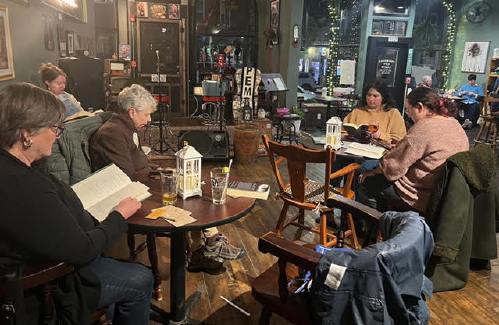
Pembroke City Limits brings yoga, book club, line dancing, and more to Suncook Village
Pembroke City Limits, a live music restaurant and bar in the Suncook Village, holds a wide variety of events each month
 The Last Stand Country Band performing in Allenstown
The Last Stand Country Band performing in Allenstown
 Garden Club blossoms in Chichester
Garden Club blossoms in Chichester
 A city for coffee lovers: Northeast Coffee Festival returning to Concord this weekend
A city for coffee lovers: Northeast Coffee Festival returning to Concord this weekend
 Pittsfield Players present “The Laramie Project”
Pittsfield Players present “The Laramie Project”
Obituaries
 Joseph Sack
Joseph Sack
Laconia, NH - Joseph H. Sack, M.D., 78, died on Wednesday, April 30, 2025, at his Laconia home surrounded by his family after weeks of visits from devoted friends. He was born on November 19, 1946, in Pittsburgh, Pennsylvania, the f... remainder of obit for Joseph Sack
 Efegenia Topouzoglou
Efegenia Topouzoglou
Pittsfield, NH - Efegenia Topouzoglou, 90, affectionately known as "Effie", former longtime resident of Pittsfield, NH, passed away on May 3, 2025, in Belmont, MA surrounded by family. As a first generation American, she was born on Nov... remainder of obit for Efegenia Topouzoglou
 John Franklin Swope
John Franklin Swope
Concord, NH - John Franklin Swope passed away on April 29, 2025. He had been a resident of Concord, NH, for 62 years and a lifetime summer resident of Woods Hole, MA. Born in Mount Kisco, NY, June 21, 1938, he was the son of Gerard Swop... remainder of obit for John Franklin Swope
 Gerard H. Villemure
Gerard H. Villemure
Manchester, NH - Gerard (Gerry) H. Villemure, 90, died Saturday, May 3, 2025, at The Courville in Manchester. He was born in Manchester on March 30, 1935, to the late Armand and Yvonne (St. Cyr) Villemure. He married Rollande Grenon on ... remainder of obit for Gerard H. Villemure


 Effort to enable town budget caps passes N.H. Legislature
Effort to enable town budget caps passes N.H. Legislature
 Robert Prevost becomes first American pope
Robert Prevost becomes first American pope
 Bishop Brady steals baseball and softball doubleheader at Hopkinton
Bishop Brady steals baseball and softball doubleheader at Hopkinton
 Program offers discounted golf rounds for young players at Concord’s Beaver Meadow
Program offers discounted golf rounds for young players at Concord’s Beaver Meadow
 Brookford Farm’s annual heifer parade celebrates family, sustainability, organic farming
Brookford Farm’s annual heifer parade celebrates family, sustainability, organic farming
 High schools: Thursday’s area baseball, lacrosse, tennis and track results
High schools: Thursday’s area baseball, lacrosse, tennis and track results

 Town elections offer preview of citizenship voting rules being considered nationwide
Town elections offer preview of citizenship voting rules being considered nationwide Medical aid in dying, education funding, transgender issues: What to look for in the State House this week
Medical aid in dying, education funding, transgender issues: What to look for in the State House this week On the Trail: Shaheen’s retirement sparks a competitive NH Senate race
On the Trail: Shaheen’s retirement sparks a competitive NH Senate race
